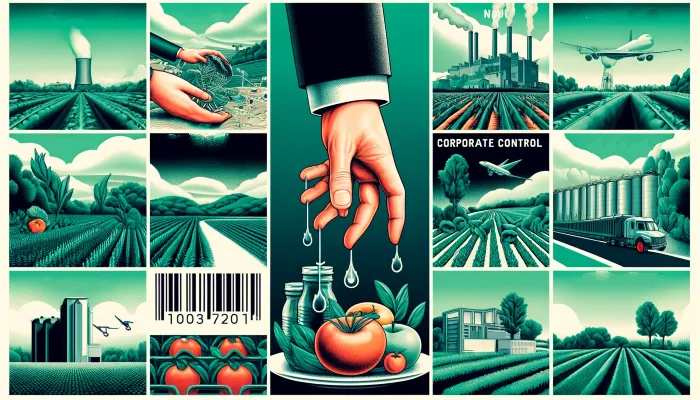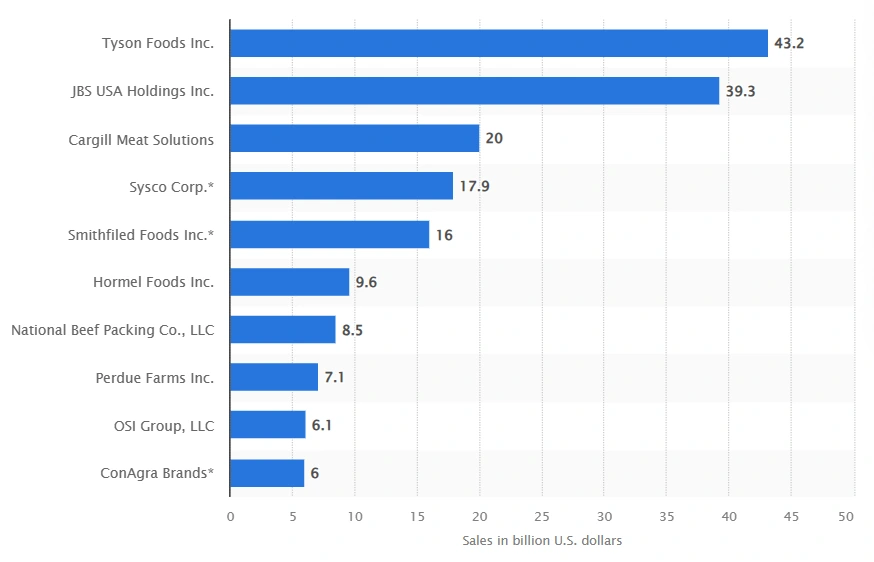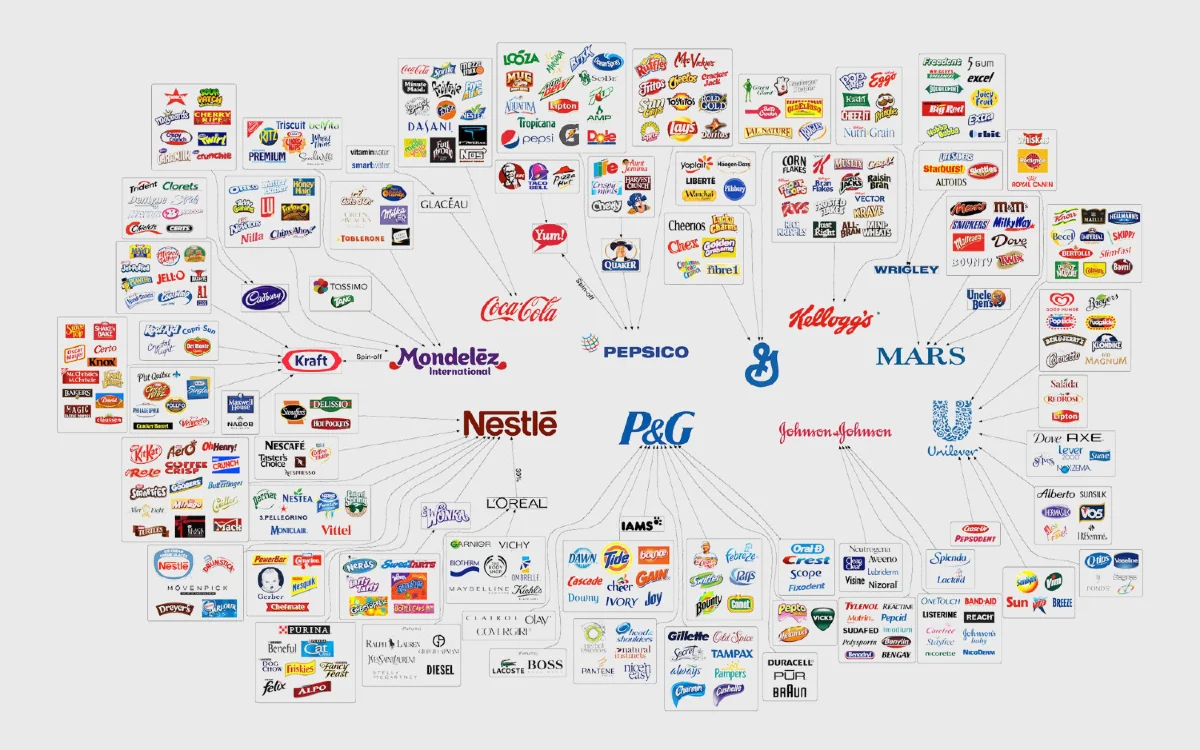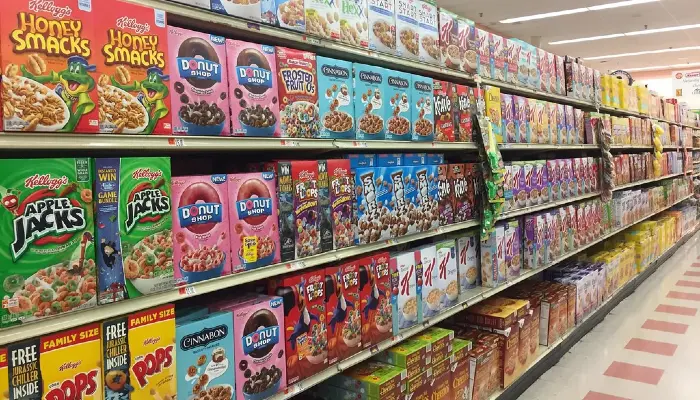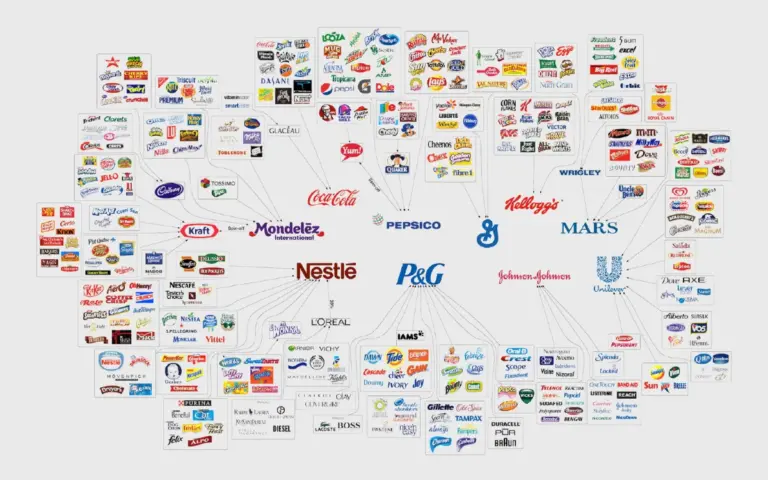Our food system is under siege. Corporate giants have taken over, creating a landscape where a handful of companies wield unprecedented power over what we eat. With the global food industry accounting for nearly $8 trillion, these corporations dominate markets, stifle competition, and prioritize profit over people.
The result? Higher prices, fewer choices, and a system that exploits both workers and consumers.
Here are eight alarming trends that reveal the depth of this issue.
1. Massive Monopolies in Meatpacking
The meatpacking industry is dominated by just four companies, controlling 85% of the market. This lack of competition leads to higher prices for consumers and lower wages for workers, contributing to economic disparity.
2. Supermarket Monopolies
Major supermarket chains operate under multiple brand names, giving the illusion of choice. The four largest players in the industry control nearly 60% of the market. Here’s a quick look at the top 5 supermarket chains and their current market share (2024):
- Walmart: Walmart is the largest grocery retailer in the U.S., commanding about 25% of the market with an extensive network of supercenters and neighborhood markets. Walmart owns Sam’s Club which has a 4.7% market share, so in total the Walmart company controls 29.7% nationally.
- Kroger: With the Albertsons merger ongoing, Kroger held approximately 10.1% of the U.S. grocery market under brands including Fred Meyer, Ralphs, and King Soopers. Once the merger is complete, the combination of the two will control roughly 16.5% nationwide.
- Costco: Known for its bulk sales and membership model, Costco holds about 9.2% of the U.S. grocery market.
- Albertsons: As of early 2024, Albertson’s has grown its market share to 6.4% with brands including Safeway, Vons, and Jewel-Osco.
- Ahold Delhaize: This multinational company controls roughly 4% of the U.S. grocery market. Operating under brands such as Stop & Shop, Giant, and Food Lion, Ahold Delhaize has a substantial presence, particularly on the East Coast.
3. The Myth of Brand Diversity
Many seemingly independent food brands are owned by a few large corporations. JAB Holding Company, for instance, controls numerous coffee brands, making it difficult for smaller companies to compete and reducing real consumer choice.
4. Dangerous Infant Formula Production
The Abbott Nutrition contamination scandal exposed the risks of corporate monopolies in essential products like infant formula. With a few companies controlling the majority of the market, any disruption can lead to widespread shortages and health risks.
5. Economic Decline in Farming Communities
Corporate farming has replaced family farms, leading to economic decline in rural areas. Small farmers are unable to compete with large agribusinesses, resulting in the loss of livelihoods and community degradation.
6. Immigrant Exploitation in Food Production
Immigrant workers, essential to the food production process, often face exploitation and poor working conditions. This systemic issue highlights the ethical concerns within our industrialized food system.
7. Ultra-Processed Food Dominance
Ultra-processed foods, linked to numerous health issues, dominate the American diet. The production of these foods is controlled by a few corporations, prioritizing profit over public health.
More To Discover
- Pyrolysis: Plastic Recycling Solution or Just High-Tech Incineration?
- Beyond Offsets: The Future is Carbon Removal Credits
- Bill Gates-Backed Bioscience Firm Will Release a Vital Palm Oil Substitute Called Palmless
- MIT Paves Way for Next-Gen Solar With Guide On Commercializing High-Energy Perovskite Cells
8. Regulatory Capture and Inadequate Oversight
The food industry exerts significant influence over regulatory bodies, often resulting in weak enforcement of food safety standards. This regulatory capture endangers public health and undermines consumer trust.
These trends show the need for greater regulation and oversight to ensure a fair and safe food system. By understanding the depth of corporate control, consumers can advocate for change and support more sustainable and ethical food practices.







